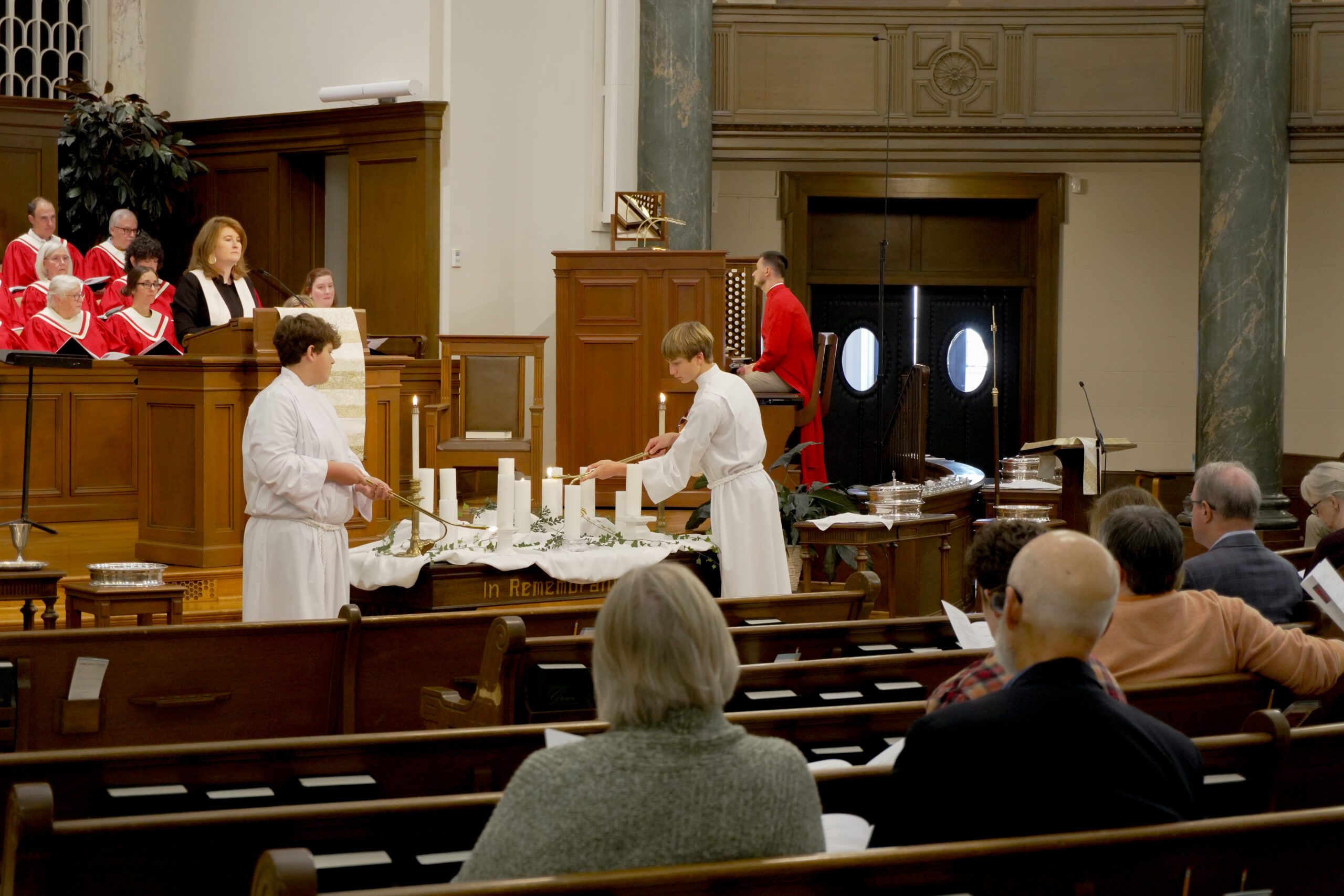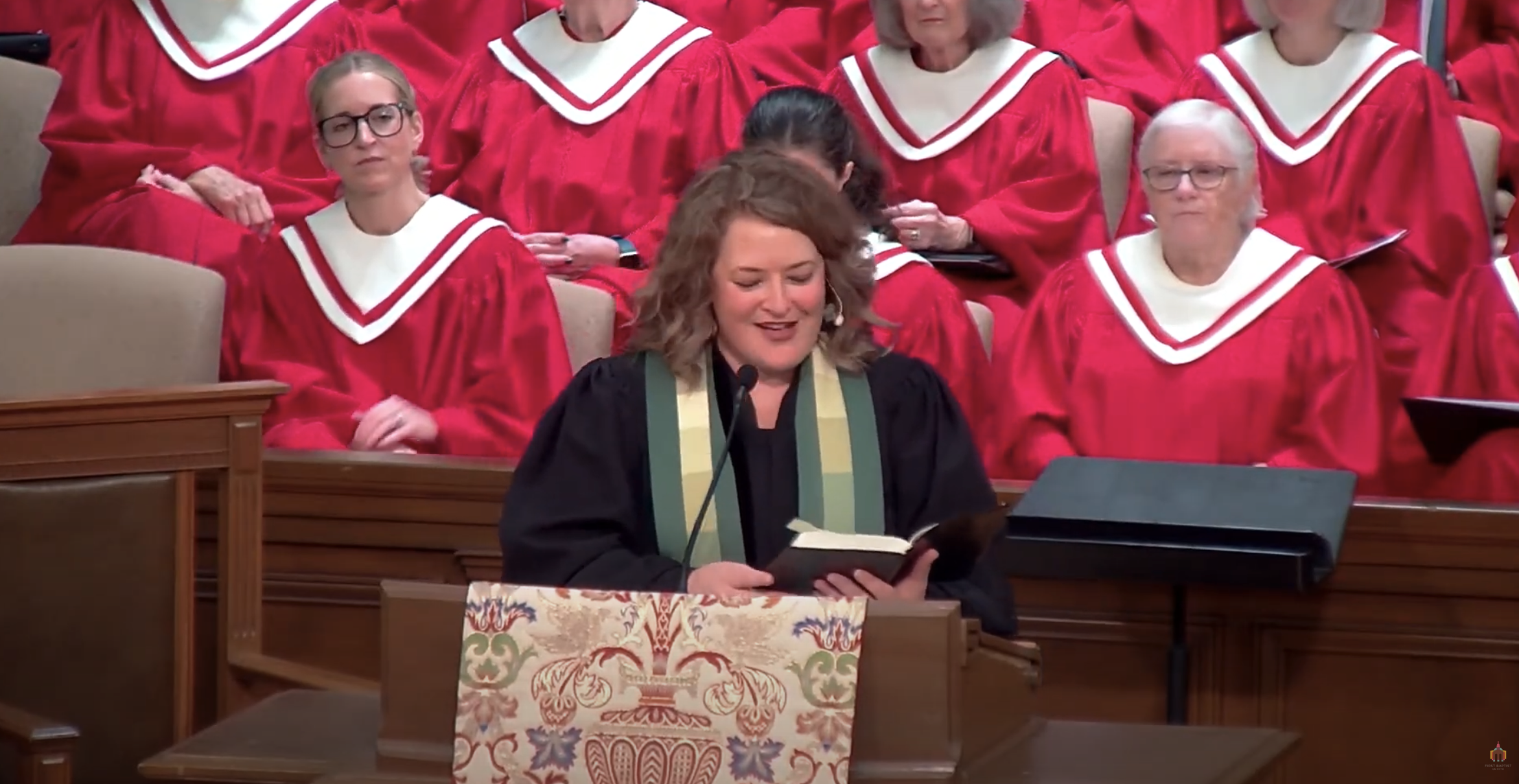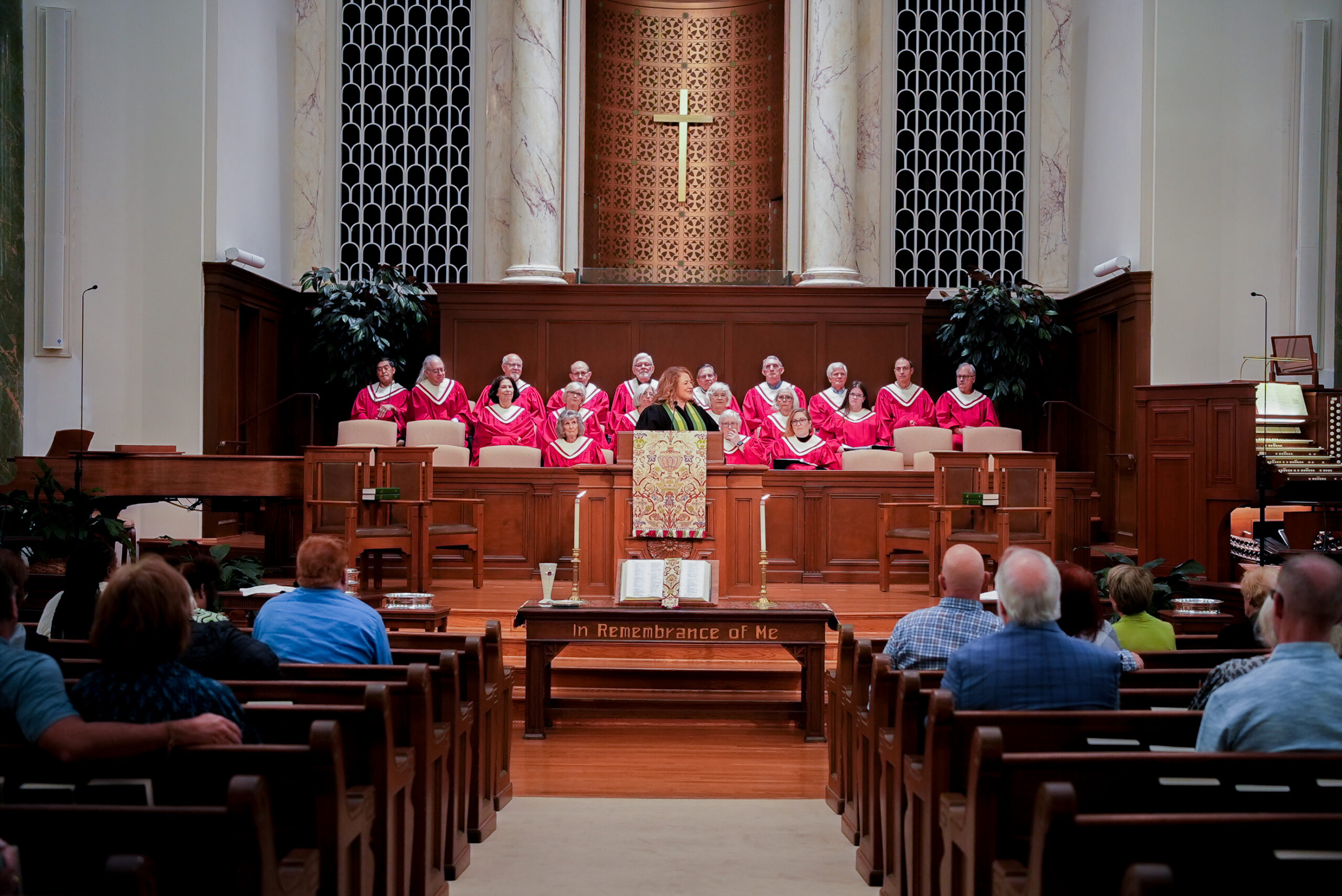IJust this week, our country’s Surgeon General Vivek Murthy issued an
81-page public health advisory for the latest epidemic to sweep our nation.1
This health emergency is costing our country billions of dollars a year, and has
as significant an effect on the human body as smoking 15 cigarettes a day.
Research shows it increases the risk of premature death by nearly 30%, and
those who struggle with this health issue are under far more significant risks
for stroke and heart disease, depression, anxiety, dementia, pain, diabetes,
inflammation, weight gain, sleep problems, addiction, and suicidality.
No, it’s not covid. It’s not any other typical target, like high blood
pressure, or cancer, or too much sugar, or our increasingly-sedentary
lifestyle. Rather, the experience of loneliness – widespread and devastating –
is affecting half of all Americans in measurable ways.
Perhaps it’s no surprise, given the months of isolation wrought by the
pandemic, or the rise in technology that has our faces glued to screens even
in the presence of people we love, or the disconnection we’ve experienced
with people in our lives. In fact, Murthy’s research looked back nearly 20
years and found that in the years since, the average American now spends 20
hours less per month with friends and 24 hours more per month alone. The
many causes of widespread polarization have culled our friends list and
driven wedges between families. I bet there’s not a one of us in the room or watching online today that hasn’t found a tight bond with a person in your life
loosened, frayed, or even severed over these past years.
Murthy tells us that loneliness affects us all, in highest reported levels
among teenagers and young adults. And when one in five American adults
and one in three American young adults live with mental illness, Murthy’s
right – this is an epidemic.
The cure?It’s right in front of our noses, simple yet undeniably
powerful. Social connection. Face-to-face time with people we love and trust.
Volunteering. Sharing physical common spaces. Allowing ourselves to see
and be seen, to feel safe and brave, to cultivate kindness and generosity, to
find love and be loved. Committing to each other. Belonging.
IILet’s go back several weeks in the movement of our Christian story to
the night he was betrayed, and place ourselves in the upper room with Jesus
and his disciples. Here in the Gospel of John’s telling, Jesus knows that his
hour is drawing near. His life here on earth will soon end. With compassion,
Jesus offers these final words and rituals to the friends closest to him, giving
them anchors upon which to hold when he departs. To their surprise and
discomfort, he takes a towel and basin to their feet, washing off the dirt of the
way they’d traveled. He breaks bread and shares it, telling them of an
upcoming betrayal by one of their own. “Little children, I am with you only a
little longer,” Jesus tells them. Yet “Where I am going, you cannot come.” I give
you a new commandment,” he says. Subtext: This is important! “Love one
another. Just as I have loved you, you also should love one another. By this,”
he concludes, “by this, everyone will know that you are my disciples, if you
have love for one another.’
The disciples were mercifully confounded. Blesstheir hearts.
Blessed Peter, the emotional one, the one who’ll soon deny his
relationship to Jesus, the one who’ll weep as the cock crows, the one who’ll
run faster than anyone hearing news of an empty tomb, the one who’ll stand
numb with fishing nets in hand wondering what is to become of his life in the
aftermath of Jesus’ death, the one who’ll plunge into the water on the hope
that his beloved friend Jesus was nearby. It’s no wonder that Peter was the
one to press in on Jesus. “But where are you going, Lord,” he asks. “Why can’t
we follow you?”
Blessed Thomas, the literalist, the one who must see to believe, the one
who won’t be conned or tricked, the one who’ll have to put his hands in the
wounds is of course the one who asks the most straightforward question of
them all. When Jesus says, “you know the way to the place where I am going,”
it’s Thomas who responds, “no we don’t! We don’t know where you’re going!
What do you take us for, a bunch of mind readers? Tell us, Jesus, tell us where
you’re going! Tell us how we’ll know the way to get there!”
Blessed Phillip, the insistent, the one among the first to follow Jesus
and connect the stories of their inherited faith with the person of Jesus of
Nazarath, here naming the very human hunger we all share. “Show us the
Father, and we’ll be satisfied,” he says. To Phillip, Jesus gets personal: “have I
not been with y’all this whole time, and you, Phillip, don’t know me?
Remember how I fed the hungry, and healed the sick, and liberated the
oppressed, and let the children come to me? That’s what God’s like.”
Peter, Thomas, Phillip, their questions and confusion and worry surely
speak for their friends too. So do you see what Jesus is offering to them? To
their worries, he offers tenderness. To their displacement, he offers safe space. To their anxieties, he offers assurance. To the disorientation of
loneliness he knows they’ll soon feel, he offers belonging.
“Don’t be troubled,” Jesus says. “In my father’s house there are many
dwelling places. Spaces I’m preparing for you. I’ll bring you with me. I’ll fold
you into my heart. Later, he’ll say, “I will not leave you orphaned. I am coming
to you.” Do you hear these promises?I’m here, I’m with you, you have a place, a
home, one prepared with hospitality and intention. I’m staying close. You don’t
have to worry that you’re not good enough orsmart enough or equipped enough.
You don’t have to try and find the answer, orsolve the mystery, or figure it all out.
All you need is here, as Wendell Berry says. Juststay close to me. I’m departing
but not leaving. But when you try to find me, don’t go looking for maps on how to
get there, for I am the way! I am the way, a path of truth and life. Stay close to me
to draw near to the heart of God. Stay close to me; I’ll never leave you.
IIIWriter and speaker Brian McLaren gave quite the paraphrase of this
text, and the ways that Christians who long for certainty to justify their own
belonging end up reading into this passage what expressly is not there – and
in so doing, ensure the tightening of belonging in its interpretation. That
alternative reading he offers goes something like this:
You should be very troubled, because if you believe in God, but not me, you
will be shut out of my Father’s house in heaven, where there are just a few small
rooms for the few who have correct beliefs… then Thomas said to him, “Lord, what about people of other religions or no religion at all? Will they go to heaven after they die?” Jesus said to him, “I am the only way to heaven, and confessing the truth about me is the only truth that will get you to life after death. None will go to heaven unless they (a) personally understand and believe a clearly-defined message about me, (b) personally and consciously ask me to come into their heart, © disavow any other religious affiliation, and (d) affiliate with the new religion I’m starting and naming after myself. None can come to God unlessthey get by me first.”2
As McLaren reminds us, to find this answer is to misunderstand the
question, which was not some form of “is Jesus the only way to heaven?” or
“what about people of other faiths or no faith?,” but rather an urgent, longing
from a follower to his leader and friend: “Jesus, where are you going?” In it, in
all the questions of Jesus in this passage, we hear the yearning for
companionship, the fear of loneliness, the coming life crisis when the One
around whom they’d oriented their lives would suddenly be gone. When the
disciples’ identity is wrapped up in being Jesus’s followers, and then he says
he’s going where they can’t follow, then what?
To Thomas’s question, “Lord, we do not know where you are going; how
can we know the way?,” let’s note here what Jesus did not say. When he said “I
am the way,” he didn’t say the church is the way. He didn’t say the scriptures
are the way. He didn’t say his teachings or his miracles, his adherents or the
religion that emerged around him was the way – as good as all of these things
might be!3 He didn’t tell Thomas to pull himself up by his bootstraps, and put
one foot in front of the other, and just figure it out on his own. No, to their
earnest human longings, Jesus knew that the deepest fear they couldn’t quite
profess was the fear of disconnection, of isolation, of loneliness, of
estrangement.
And to that fear, he promised belonging. Did you hear it in the text?
Don’t be afraid. Trust me. When you feel like there’s nowhere you belong,
know you have a home, and I’m preparing it for you. When you feel like
there’s no one who cares, come close to me. When you feel like there’s
nowhere to turn and you’re stuck in the paralysis of indecision and
unknowing and all that this life gives you, know that I’m the way. When you
wonder what the way is, it’s the way of loving one another just as I’ve loved
you. I am the Way. Immanuel, God with us!
Funny – I’m pretty sure that 2000 years later, that primal longing for
belonging has only intensified. Isn’t that what’s at the root of our crisis of
loneliness?I tell you, as I heard Vivek Murthy describe what he understands
as a potential treatment, the antidote, the vaccine to the brutal epidemic of
loneliness (remember: social connection; face-to-face time with people we
love and trust; volunteering; sharing physical common spaces; allowing
ourselves to see and be seen, to feel safe and brave, to cultivate kindness and
generosity, to find love and be loved; committing to each other; belonging) – I
couldn’t help but to think, this is us! This is the church! When we’re at our
best, this is what the church – not just our church, but the Church – this is
what we do! Belonging is our bread and butter! Social connection is our
wheelhouse! Sharing safe and brave space is our M.O.! Finding love and being
love, seeing and being seen, committing to each other and something bigger
and truer and more beautiful than we’ll ever glimpse alone – this is our
soapbox! This is us!
So it’s frankly no surprise that we who are followers of Jesus and read
John 14 like Brian McLaren described are a little nervous! We’re feeling the
urgency and the fear and the anxiety of belonging, right? We want to make sure we’re in – and sometimes that looks like demanding clarity about who’s
in and out of God’s house. The irony though is that in a promise of belonging
to Jesus and thus belonging to God, we hear isolation. In a promise of
companionship, we hear disconnection. In a promise of abundance and many
rooms and a wide Way of Love, we hear scarcity and smallness and a narrow
path.
Friends, if we belong well to each other, it’s because we belonged first
to God – because God belonged first to us. From the first moment of creation
to the very end of time, the story of God in this world is a story of belonging,
of love, of being marked as beloved of God, where God insists on coming
close to us. That is the story!
Maya Angelou said it best, “The ache for home lives in all of us, the safe
place where we can go as we are and not be questioned.”4
(I confess, I read that quote and heard the Cheers theme song! “Sometimes you want to go where everybody knows your name!”) Friends, that ache for home is an ache to belong. And nowhere will we belong more fully and freely and
unconditionally than with Jesus. No bar, no group of friends, no club, no
church, nowhere do we find belonging more clearly, finally and fully and
unconditionally than with Jesus. Where are you going, Jesus? How can we know
the way? Will you show usthe Father? To us all, Jesus offers us a way home. It’s
a Way lined with truth and life. A Way filled with fellow pilgrims on the
journey. A Way where we hold the Christlight for each other – weeping with,
laughing with, walking with, caring with, seeking justice with, holding with,
loving with, receiving and giving grace with. A Way where the blind see and
the lame dance, where we are neither Jew or Greek, slave or free, male and female, but all are one in Christ Jesus, a way where the crosses of life seem
like the end, but the openness of the empty tomb is instead the place where
new life begins.
IVI heard a story once of a man named Charlie. You see, Charlie had lost
his father a few years back. With time, their family’s pain gave room enough
to sift through Charlie’s father’s items — well worn boots and old camping
equipment, stacks of yellowed papers and artifacts from a life well-lived.
Charlie, his three brothers, and their mother went down to the family’s
hunting lodge one day to clean it out. As they moved the dusty belongings
around, Charlie noticed his father’s old work table. It wasn’t anything special,
that worn, wooden table, but it was the place where his dad had sat so many
nights — telling stories, playing cards, reading, working with his hands as he
liked to do.
But today, Charlie noticed something he’d never noticed before. For in a
small corner on the underside of the table, there was writing carved into the
wood. Four names etched there — Frances, Langdon, Charles, James — the
names of Charlie and his brothers. It was as if, even as their hearts ached with
fresh grief each day their father was gone, he was still telling his sons they
had a place to belong — one heart, one home, one way they would always be
able to find.5
Friends, God’s house is crowded, that God’s table is long, that Jesus
brings us with him, that when we arrive, I bet if we crouch down and look on
the corner of the table, we might just spot our names etched right there,
ready to welcome us home. Amen!





